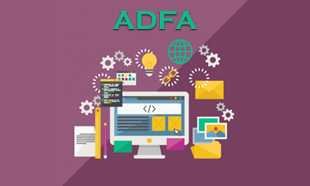Description
Course Name: Advance Diploma in Financial Accounting
Course Id: ADFA/Q1001.
Education Qualification: 12th Pass.
Duration: 370 Hrs (Equivalent to One Year).
Total Credits: 18.
How You will Get Diploma Certificate:
Step 1- Select your Course for Certification.
Step 2- Click on Enroll Now.
Step 3- Proceed to Enroll Now.
Step 4- Fill Your Billing Details and Proceed to Pay.
Step 5- You Will be Redirected to Payment Gateway, Pay Course and Exam Fee by Following Options.
Card(Debit/Credit), Wallet, Paytm, Net banking, UPI and Google pay.
Step 6- After Payment You will get Study Material Login id and Password on your email id.
Step 7- After Completion of Course Study give Online Examination.
Step 8- After Online Examination you will get Diploma Certificate soft copy(Scan Copy) and Hard Copy(Original With Seal and Sign).
Step 9- After Certification you will receive Prospect Job Opportunities as per your Interest Area.
Online Examination Detail:
- Duration- 120 minutes.
- No. of Questions- 60. (Multiple Choice Questions).
- 10 Questions from each module, each carry 10 marks.
- Maximum Marks- 600, Passing Marks- 40%.
- There is no negative marking in this module.
| How Students will be Graded: | ||
| S.No. | Marks | Grade |
| 1 | 91-100 | O (Outstanding) |
| 2 | 81-90 | A+ (Excellent) |
| 3 | 71-80 | A (Very Good) |
| 4 | 61-70 | B (Good) |
| 5 | 51-60 | C (Average) |
| 6 | 41-50 | P (Pass) |
| 7 | 0-40 | F (Fail) |
Benefits of Certification:
- Government Authorized Assessment Agency Certification.
- Certificate Valid for Lifetime.
- Lifetime Verification of Certificate.
- Free Job Assistance as per your Interest Area.
Syllabus:
Introduction to Accounting – Introduction, Forms of Business Organization and its Relevance of Accounting, Definition of Accounting and its role in making Business Decision, Branches of Accounting, Accounting as an Information system, Accountant, Organization for Accounting and Finance, Importance of Ethics in Accounting, Summary, Self-Assessment Questions, Reference and Further Readings.
Tally ERP 9 – Complete Book Keeping, Why is Tally the Best for Basic Financial Management, why is Tally the Best for Advanced Financial Management, Why Tally is Best for Basic Inventory Management, Why Tally is the Best for Advanced Inventory Management, The Technology Advantage of Tally. ERP 9, Statutory Compliance Capabilities in Tally. ERP 9, Payroll Compliance in Tally. ERP 9.
Sales & Purchase Management – Introduction, Definition, Benefits of Selling Activities, Elements of Selling Activities, Elements of Sales Management, Objectives of Sales Management, SMBO Approach, Importance of SMBO, Organisation of Selling unit, Summary, Keywords, Self-Assessment Questions, References/ suggested Reading.
GST (Goods and Service Tax) – GST vs the Current Indirect Tax Structure, why is GST is a Big Deal, Time Place and Value of Supply, Registering Under GST, GST Returns-How and When to File Them, Mixed Supply and Composite Supply, Composition Levy, what is Aggregate Turnover, Input Tax Credit in Details, Reverse Charge, what is GST Compliance Rating, Impact of GST on Manufacturers and FMCG Industry.
Preparation of Balance sheet, P&L – Financial Statements under Companies Act- An Introduction, Schedule III to Companies Act, 2013 – Content Ready Reckoner. Highlights and Major Changes Introduced in Schedule III, Balance Sheet, Statement of Profit & Loss, Cash Flow Statements, Statement of Changes in Equity, Current & Non-Current Classification, Frequently Asked Questions on Schedule III, Glossary of Important Term used in Financial Statements, Broad Check List of Audit of Financial Statements Prepared as per Companies Act 2013,
Income & Expense – Basic Concepts, Residential Status, Agricultural Income, Income which do not Form Part of Total Income, Income under Head Salaries, Income from House Property, Income under Head Profits and Gains of Business or Profession, Income under Head Capital Gains, Income under Head Income from Other Sources, Income of Other Persons Included in Assesses Total Income, set off and Carry Forward of Losses, Dedications in Computing Total Income.





Reviews
There are no reviews yet.